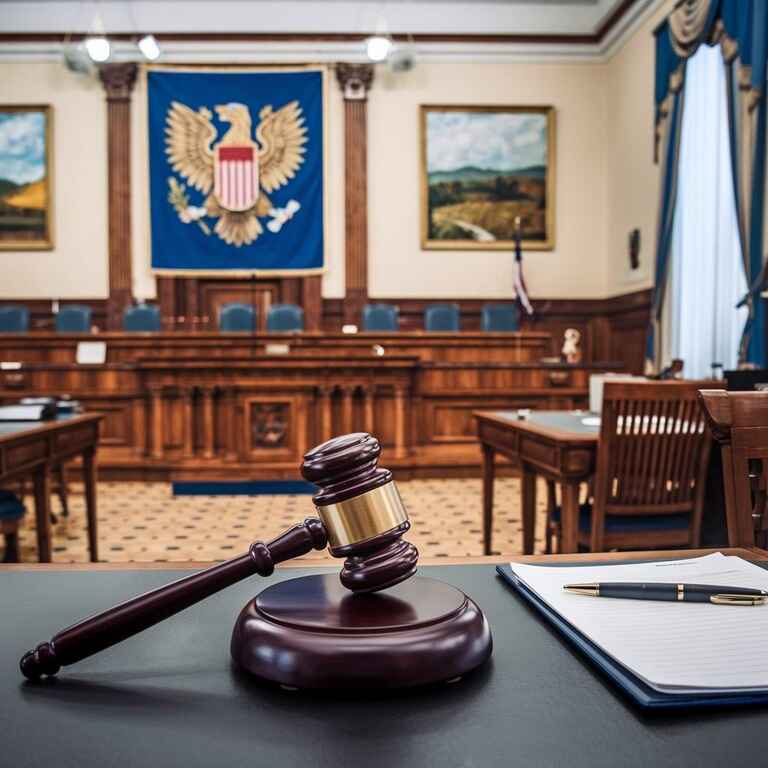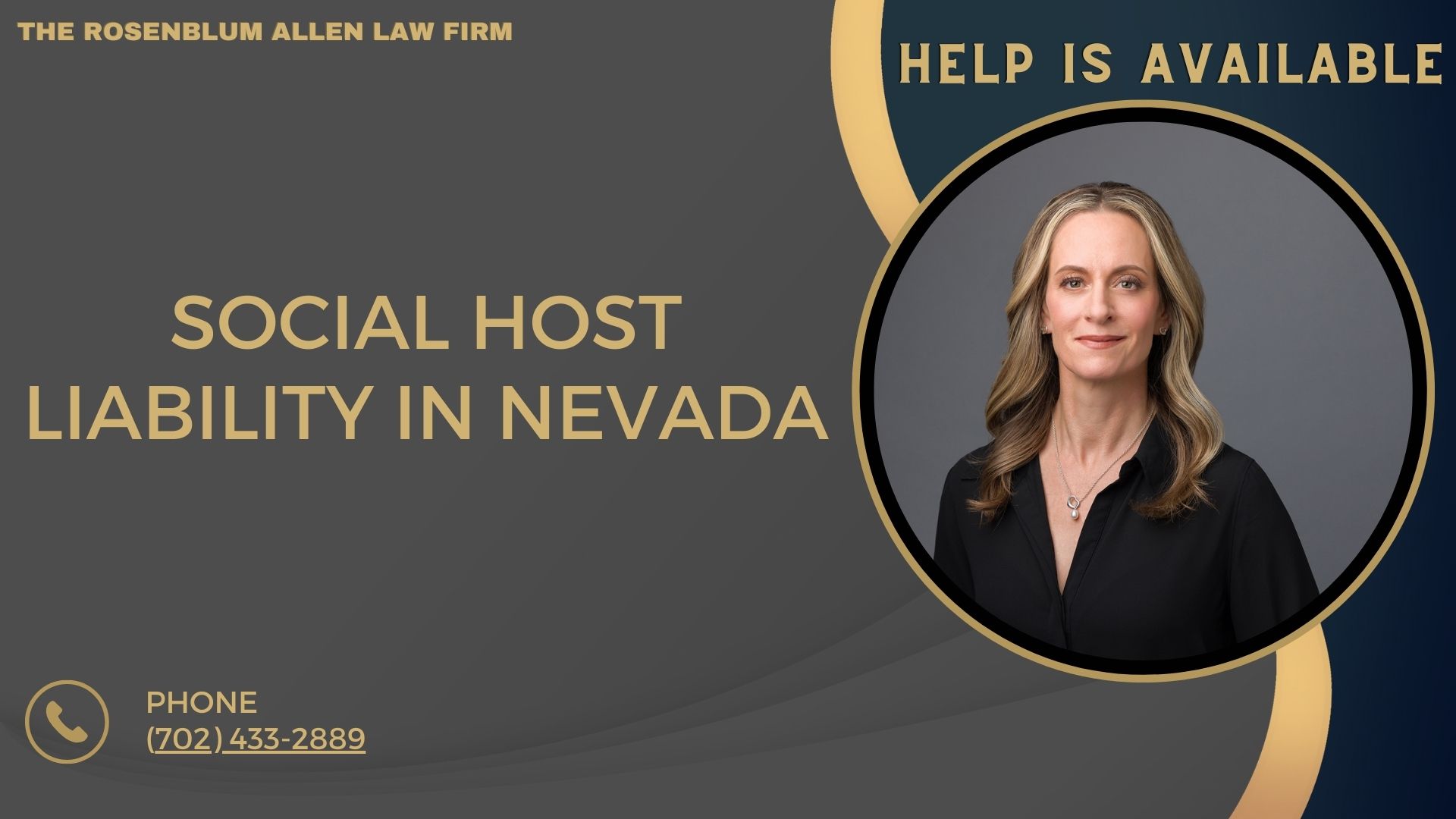Nevada, known for its vibrant social scene and entertainment culture, frequently hosts gatherings where alcohol is served. From private parties to celebrations in residential settings, alcohol often plays a central role. With this popularity, however, comes a legal responsibility for hosts to understand the potential liabilities involved when alcohol is served in private homes or at events.
 Why Liability Laws Matter for Hosts
Why Liability Laws Matter for Hosts
In Nevada, social hosts can be held liable for injuries or damages caused by guests served alcohol at their event. This includes accidents involving intoxicated guests, underage drinking, or impaired drivers leaving the event. Liability laws protect individuals and the public by holding hosts accountable for ensuring safe environments and taking reasonable steps to prevent harm.
This article aims to provide a comprehensive guide for party hosts in Nevada on understanding social host liability. It will explain the key legal principles, potential risks, and best practices for avoiding legal trouble. Whether you are hosting a small gathering or a large celebration, knowing your rights and responsibilities is essential to protecting yourself legally.
Defining Social Host Liability
Distinction from Commercial Establishments
Social host liability differs significantly from the liability faced by commercial establishments such as bars and restaurants. In commercial settings, alcohol is served as part of a business transaction, and these businesses are subject to more stringent regulations under Nevada law. However, social hosts are individuals hosting private gatherings where no money is exchanged for alcohol, and they are generally not subject to the same level of scrutiny or regulation.
Yet, even though social hosts are not operating as businesses, they can still face legal consequences if they negligently serve alcohol in a way that leads to harm. The key difference is that commercial establishments must adhere to specific guidelines, including alcohol-serving permits, while private hosts are more limited in their obligations but still have legal duties.
Key Legal Principles in Nevada
Nevada law holds social hosts liable under specific circumstances. The most important principles to understand are:
- Intoxication and Injury: If a guest becomes intoxicated at a private gathering and subsequently causes injury or property damage, the host may be held responsible if they acted negligently by overserving alcohol or failing to intervene.
- Underage Drinking: Hosts are strictly prohibited from serving alcohol to minors under Nevada law. Penalties for violating this law can be severe, including fines and potential criminal charges.
Common Misconceptions
Many hosts mistakenly believe they are not liable for actions taken by guests after they leave the party, but this is not always the case. The host could be held responsible under social host liability laws if a guest is over-served and causes an accident or injury. Additionally, some assume that if no money was exchanged for alcohol, they are exempt from liability. However, the law still holds them accountable for ensuring the safety of their guests, particularly when it comes to intoxication and underage drinking.
This section has clarified the main aspects of social host liability, distinguishing it from commercial host liability and addressing some common misconceptions that may leave hosts vulnerable to legal action.

Serving Alcohol to Minors
Nevada Statutes Prohibiting Service to Underage Guests
In Nevada, it is illegal to serve alcohol to anyone under the age of 21. This is a strict law with no exceptions for private gatherings. Social hosts must verify the age of their guests, especially in an environment where alcohol is being served. If a minor consumes alcohol at a party and then causes harm or engages in risky behavior, the host could face serious legal consequences.
The law is clear: if you’re serving alcohol, you need to make sure everyone drinking is of legal age.
Penalties and Legal Consequences
Serving alcohol to a minor can result in harsh penalties, both criminal and civil. Here’s a breakdown of potential consequences:
- Criminal Penalties: Hosts who knowingly serve alcohol to minors may face misdemeanor or felony charges, depending on the situation. Penalties can include fines, community service, and even jail time.
- Civil Liabilities: Beyond criminal penalties, hosts may also face civil lawsuits if the minor injures themselves or others while intoxicated. This could result in expensive legal fees, medical costs, and damages for the victims.
Even if the host didn’t intend to break the law, they may still be held responsible for underage drinking at their event.
Preventive Measures and ID Checks
To avoid these penalties, hosts should take simple yet effective steps to ensure they are not serving alcohol to minors:
- ID Checks: Always ask for identification if there’s any doubt about a guest’s age. It’s better to ask than to risk breaking the law.
- Clear Communication: Let guests know that you will be checking IDs. This will set expectations and prevent awkward situations.
- Keep Track of Who’s Drinking: To prevent minors from sneaking drinks, ensure that alcohol is distributed by a designated person or in a controlled way.
Extra caution can go a long way in protecting you from legal trouble.
Potential Civil Liabilities
Liability for Injuries Caused by Intoxicated Guests
As a social host, you’re responsible for ensuring the safety of your guests. If someone leaves your event intoxicated and causes harm to themselves or others, you could be held liable. This includes car accidents, fights, or accidents resulting from impaired judgment. For instance, if a guest drinks too much and drives home, causing an accident, the host may be found partially responsible for serving that person alcohol.
It’s not just the guest who’s in danger. If someone gets hurt because of their intoxication, you could face legal action.
Role of Negligence in Civil Suits
Negligence plays a significant role in many civil suits related to social host liability. If you serve alcohol to someone who is visibly intoxicated or fails to take action to prevent dangerous behavior, you could be considered negligent. This includes things like:
- Not stopping someone from driving after they’ve had too much to drink.
- Failing to cut off a guest who is intoxicated.
- Not ensuring that guests have a safe way to get home.
You could be held responsible for any resulting injuries or damages if negligence can be proven.
Defense Strategies for Social Hosts
Defense strategies can be used if you are accused of liability. Some of the most common defenses include:
- No Visible Intoxication: If the guest did not show signs of intoxication when they left the event, you might argue that you were not negligent.
- Guest Volunteered to Drive: If a guest insisted on driving and didn’t show signs of intoxication, you might be able to argue that you did everything you could to prevent harm.
- Alcohol Not Served at the Event: In some cases, the host may argue that alcohol wasn’t served at the party, though this defense is limited.
However, it’s essential to take reasonable steps to prevent harm to your guests in the first place.

Best Practices for Responsible Hosting
Monitoring Guest Consumption
As the host, you are responsible for monitoring the alcohol consumption at your gathering. It’s easy for things to get out of hand, especially when guests are enjoying themselves. But you can help prevent problems by keeping an eye on how much people are drinking.
Here are a few practical tips:
- Pace the Drinking: Avoid letting guests drink too quickly. Offer non-alcoholic beverages in between alcoholic ones.
- Know Your Guests: If you know someone who tends to drink excessively, be extra cautious and keep an eye on them.
- Don’t Over-Serve: Serving alcohol is about moderation. If someone seems tipsy, cut them off and politely suggest water or food instead.
By staying attentive, you can reduce the risk of over-intoxication and keep your event safe.
Providing Transportation or Accommodations
One of the most important ways to protect your guests—and yourself—is to ensure everyone has a safe way home.
You can offer options like:
- Designated Drivers: Encourage guests to have a designated driver or make arrangements for someone to stay sober and drive others home.
- Rideshare Apps: Suggest using rideshare apps like Uber or Lyft. You could even set up a ride for a guest if you notice they’re too intoxicated to drive.
- Guest Accommodations: If possible, offer to let guests stay at your home or arrange for nearby accommodations.
Taking these steps shows you care about your guests’ safety and helps prevent accidents after the party.
Clear Policies for Underage Attendees
If you have minors attending your event, it’s essential to have a clear alcohol policy in place. You must not serve alcohol to anyone under 21, and you should communicate this to all guests, both adults and minors.
To ensure everyone understands:
- Pre-Party Communication: Inform guests in advance that no alcohol will be served to minors. This will avoid confusion or awkward situations at the party.
- Adult Supervision: If minors are present at your gathering, make sure responsible adults are present to supervise. Watch who is drinking and ensure no one is breaking the law.
- Alcohol-Free Zones: Consider having an alcohol-free area for minors or offer non-alcoholic drink options to avoid temptation.
Being proactive about these policies will help keep you compliant with the law and ensure everyone has a good time safely.
Insurance Considerations
Homeowner’s or Renter’s Insurance Coverage
Your homeowner’s or renter’s insurance policy might provide some protection in case of an accident or injury related to your gathering. These policies can sometimes cover personal liability, but the coverage for alcohol-related incidents varies from policy to policy.
Make sure to:
- Review Your Policy: Check your homeowner’s or renter’s insurance to see if it covers alcohol-related incidents at social gatherings.
- Ask About Liquor Liability: Some insurance policies include a “liquor liability” clause covering alcohol-related accidents. If you’re planning on serving alcohol, this might be a worthwhile addition.
Before hosting an event, it’s crucial to understand what your current insurance covers—and doesn’t cover.
Policy Exclusions and Additional Riders
Some insurance policies may have exclusions for alcohol-related incidents, meaning you could be left uncovered if something goes wrong at your party. For example, your standard homeowner’s insurance might not cover injuries caused by an intoxicated guest.
To address this:
- Add a Rider: You may be able to purchase a rider (an additional coverage) that explicitly covers social events where alcohol is served.
- Limit Liability: Check if your insurance company offers options to limit your liability for parties and gatherings.
Even if your insurance does cover alcohol-related accidents, it’s worth understanding exactly what’s included.
When to Consult an Insurance Agent
If you’re unsure whether your current insurance will provide the coverage you need for your party, it’s a good idea to consult an insurance agent. They can guide you on what’s available and help protect you. Don’t wait until after an incident to discover you’re not covered!
Here’s when you should consider consulting an agent:
- Before Hosting a Large Party: If you plan to host a large party with alcohol, getting the right insurance is essential.
- For Frequent Hosts: If you host parties regularly, it’s worth getting a specialized policy that addresses alcohol liability.
- If You’re Concerned About Specific Risks: If you have concerns about your guests’ safety or your liability, an agent can help address these issues.
- Having the right coverage in place gives you peace of mind so you can enjoy hosting your event without worrying about unexpected consequences.

Case Studies
Examples of Social Host Liability Cases
While social host liability might seem like a distant concern, several real-life cases in Nevada demonstrate the serious consequences of not understanding the law. Here are a few examples to illustrate how things can go wrong when hosts don’t take responsibility:
- Case 1: Serving Alcohol to Minors at a House Party
- In one case, a host threw a house party where several minors attended. The host served alcohol to underage guests, and one of the minors later drove home intoxicated. The minor caused an accident, and the host was sued for negligence. The court found the host partially liable for the injuries because they had allowed underage drinking and failed to prevent the guest from driving while intoxicated.
- Case 2: Guest Injury Due to Over-Served Alcohol
- At a birthday party, one guest became visibly intoxicated and was encouraged to leave the event. On their way out, they fell and injured themselves. The host was sued for providing too much alcohol to the guest, who had already exhibited signs of intoxication. The case highlighted the host’s failure to cut off the guest’s alcohol consumption despite clear signs of impairment.
These cases show how easily a fun gathering can become a legal nightmare if hosts don’t take proper precautions.
Lessons Learned for Future Hosts
What can we learn from these cases? Here are some key takeaways for anyone planning to host an event where alcohol is served:
- Know the Laws: Understand Nevada’s underage drinking and intoxication rules. Ignorance of the law is not a valid defense.
- Monitor Guests: Monitor your guests’ behavior, especially if they start drinking heavily. It’s better to be proactive than reactive.
- Don’t Serve Alcohol to Minors: Always check IDs. If you’re unsure about someone’s age, it’s worth verifying.
- Prepare for Emergencies: Have a plan in case someone gets too intoxicated. This might include arranging a ride or asking them to stay overnight.
- By learning from these cases, you can avoid costly mistakes and ensure your events are safe and enjoyable for everyone.

Breaking It All Down
As a host, you play a significant role in ensuring the safety of your guests. While it might seem like the responsibility falls solely on the individuals who consume alcohol, Nevada law holds hosts accountable for their actions as well. Understanding social host liability and your obligations can help you avoid legal trouble and make your gatherings safer.
Nevada is known for its lively social scene, and hosting parties is a big part of that culture. But while enjoying a good time is essential, balancing that with legal responsibility is equally crucial. Being mindful of the risks associated with serving alcohol ensures that your social events don’t come with unintended consequences.
To sum it up, here are a few final recommendations for anyone hosting a party in Nevada:
- Stay Informed: Know the laws about serving alcohol, especially regarding underage guests and intoxication.
- Be Proactive: Monitor your guests’ alcohol intake and step in if things get out of hand.
- Have a Plan: Ensure everyone has a safe way to get home. Offering rideshare options or letting people stay the night can prevent accidents.
- Check Your Insurance: Ensure your insurance policy covers any potential liabilities arising from your event.
By following these steps, you’ll be setting yourself up for a successful and legally safe gathering. Hosting responsibly isn’t just about having fun—it’s about keeping everyone safe and avoiding legal headaches down the line.

Frequently Asked Questions
What is social host liability?
Social host liability refers to a person’s legal responsibility when hosting a social event where alcohol is served. In Nevada, a host may be held liable for any harm or injuries caused by guests who were over-served or underage, mainly if those guests cause damage or harm after leaving the event.
Can I be held responsible for guests' actions after they leave my party?
Yes. If a guest causes harm or an accident after becoming intoxicated at your party, you could be held liable. For example, if a guest drinks heavily and then drives, injuring someone on the way home, you could be partially responsible if you failed to intervene and prevent them from leaving in an impaired state.
What are the penalties for serving alcohol to minors in Nevada?
Serving alcohol to anyone under the age of 21 in Nevada is illegal and can result in criminal penalties, including fines, potential jail time, and the possibility of a civil lawsuit. The host could be held liable for any injuries or accidents involving the minor after consuming alcohol.
Do I need special insurance if I'm hosting a party?
While your homeowner’s or renter’s insurance may offer some protection, checking if it covers alcohol-related incidents is essential. Consider adding liquor liability coverage or consulting with an insurance agent to ensure you’re fully protected during social events where alcohol is served.
How can I prevent liability at my gathering?
To minimize liability, here are some tips:
- Always check IDs to ensure guests are of legal drinking age.
- Monitor guests for signs of intoxication and intervene if necessary.
- Provide transportation options for guests who may be too impaired to drive, such as rideshare services or designated drivers.
- Set clear expectations about alcohol consumption, particularly for underage attendees.
Can I be sued if a guest drinks too much and injures themselves?
Yes. If you continue to serve alcohol to a guest who is already intoxicated or fail to stop them from engaging in risky behavior, such as driving, you could be held liable for any resulting injuries or damages.
What should I do if someone at my party becomes too intoxicated?
If a guest becomes visibly intoxicated, it’s crucial to stop serving them alcohol. You should encourage them to stay at the party or arrange safe transportation. Offering water or food can also help mitigate the effects of alcohol.
Can I be sued if a guest leaves my party and causes an accident?
If a guest leaves your party intoxicated and causes an accident, you could be held liable under social host liability laws. It’s essential to prevent guests from driving under the influence, including offering rides or asking them to stay until they’re sober.
Is social host liability only applicable to significant events?
No. Social host liability applies to any event where alcohol is served, regardless of the size. Even small gatherings can lead to legal issues if the host does not take proper precautions to ensure guests’ safety.
What are the best practices for hosting an alcohol-free event?
If you’re hosting an alcohol-free event, you eliminate the risk of social host liability related to alcohol. However, it’s still important to:
- Ensure a safe and respectful environment.
- Provide enough food and beverages to accommodate guests.
- Consider offering entertainment or activities to keep guests engaged and prevent any awkwardness or confusion about the absence of alcohol.

Additional Resources for You from The Rosenblum Allen Law Firm.
For more detailed information on topics related to DUI and social host liability, check out the following resources:
Las Vegas DUI Lawyer
Find expert legal representation for DUI cases in Las Vegas. Whether you’re facing your first offense or a repeat charge, our team is here to help.DUI Consequences
Understand the legal consequences of a DUI conviction, including fines, license suspensions, and possible jail time. This page explains everything you need to know.DUI License Suspension
If you’ve been arrested for a DUI, your license may be suspended. Learn how this can impact you and what options are available for reinstatement.DUI Plea Bargain
Explore how DUI plea bargains work, including potential benefits and drawbacks. This guide will help you understand your options when facing DUI charges.Drug DUI
Learn about the legal implications of driving under the influence of drugs. This page covers both prescription medications and illegal substances.DUI Defense Strategies
Discover different DUI defense strategies that could help you avoid a conviction. Our experienced attorneys explain how to challenge evidence and negotiate the best outcome.First Time DUI
If this is your first DUI offense, you may have more options than you think. This page provides valuable information about first-time DUI charges and potential penalties.Second Time DUI
Facing a second DUI offense? This resource provides guidance on the increased penalties and legal strategies available for repeat offenders.Marijuana DUI
Learn about DUI charges related to marijuana use and how the law views driving under the influence of cannabis.Nevada DUI Law
Get an overview of Nevada DUI laws and what to expect if you are arrested for driving under the influence in the state.Las Vegas Legal Alcohol Limit
Understand the legal alcohol limit in Las Vegas and how it affects your ability to drive. This page explains the blood alcohol content (BAC) limits and the penalties for exceeding them.
Feel free to explore these pages for more in-depth information on the legal aspects of DUI and related issues in Nevada!

Offsite Resources for You
Here are seven useful offsite resources related to social host liability, DUI, and legal matters in Nevada that you may find helpful:
Nevada Department of Public Safety – DUI
The official site for the Nevada Department of Public Safety offers valuable information on DUI laws, penalties, and resources for drivers in Nevada.National Highway Traffic Safety Administration (NHTSA)
The NHTSA provides comprehensive resources on the dangers of impaired driving, DUI prevention programs, and educational materials for both the public and law enforcement.Mothers Against Drunk Driving (MADD)
MADD is a leading non-profit organization that supports victims of drunk driving and advocates for stronger DUI laws. Their site includes resources for individuals facing DUI charges and for those who have been impacted by impaired driving.Nevada State Bar
The official website of the Nevada State Bar offers resources for finding a lawyer, understanding legal rights, and accessing legal education in Nevada.American Bar Association (ABA)
The ABA provides resources for both the public and legal professionals, including articles on DUI law, social host liability, and other relevant legal topics.NHTSA’s Traffic Safety Marketing
A helpful resource for understanding the latest safety campaigns and laws related to impaired driving. It includes data, marketing materials, and campaigns focused on reducing alcohol-related accidents.National Safety Council (NSC)
The NSC offers educational content on safe driving practices, the dangers of impaired driving, and how to prevent accidents caused by alcohol or drugs.
These sites provide essential information to help you better understand DUI laws, liability, and resources for responsible hosting and driving in Nevada.

A Special Message from Our Lead Attorney, Molly Rosenblum Allen, Esq

Thank you for taking the time to explore these resources! I hope you found the information helpful. Please get in touch with me and my team if you have any questions or are ready to take the next step. We’re here to help you navigate your legal matters with confidence.
Call us today at (702) 433-2889 to get the ball rolling. We look forward to assisting you!
— Molly and the Rosenblum Allen Law Firm Team






